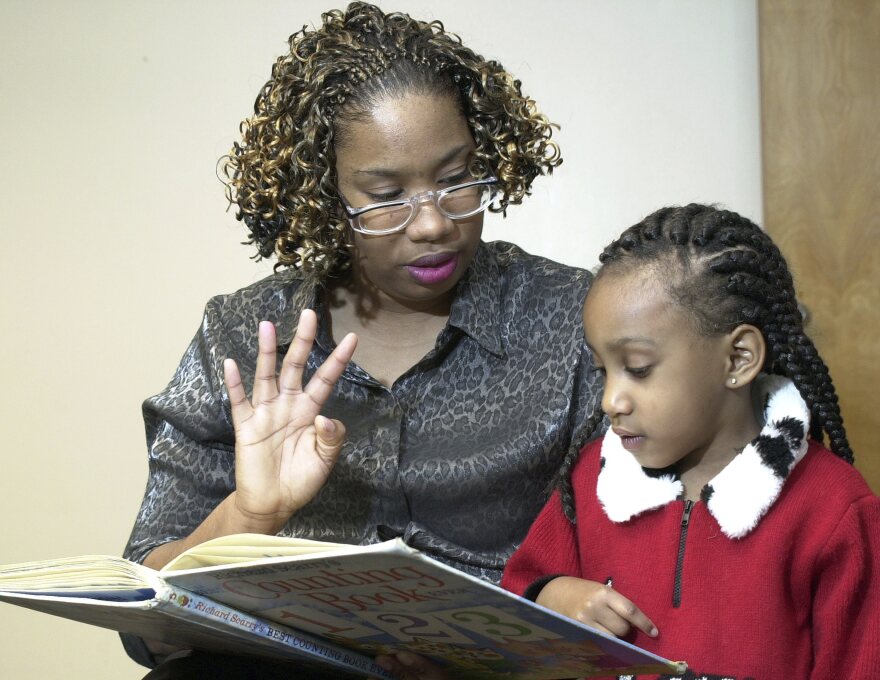America's K-12 classrooms are more racially diverse than ever. The number of students who identify as minorities outnumber white students for the first time, and experts project that by 2023, only 45% of K-12 students will be white.
Yet today, more than 80% of teachers in the U.S. remain white – and the vast majority are white women.
It's an issue that has received increased attention in recent years, and has prompted schools to look for new ways recruit more teachers of color, including hiring search firms.
But once schools hire these teachers, they often have a hard time retaining them. Data from the U.S. Education Department found in the 2012-2013 school year, 22% of black public school teachers moved schools or left the profession altogether, compared to 15% of white teachers.
In an attempt to figure out how to retain black teachers, non-profit advocacy organization Education Trust asked African-American teachers about the challenges they face. According to Education Trust:
Our sample included 150 black teachers in public and public charter schools in seven states. Participants spanned grade levels and experience. Eighty percent of participants were women, nearly one-third were veteran teachers with more than 15 years of experience, and the majority (90 percent) taught in cities.
Here are four key themes from the study and what some of those teachers had to say – quotes that were all anonymous so teachers would feel comfortable sharing their experiences.
1. Connecting with black students.
While teachers in the study felt they often had an easier time building connections with black students, many felt pigeonholed into teaching primarily black students. Some also felt burdened and taxed by the stereotype that they could relate to every black child's experience. One teacher said:
I mean, and most of the time you can, but even when you can’t, it’s assumed that you are supposed to touch every African-American child that crosses your path.
2. Enforcing versus educating.
Black teachers expressed that while they were uniquely able to leverage cultural similarities to manage their classrooms, this often led to them being seen as enforcers rather than educators. One teacher indicated that this meant their colleagues and administrators believed they could only teach troublesome, lower-performing students:
I’ll teach the low level, but I have to have a high level to balance it out, so that for one, I can actually talk to people during the course of the day who care, and so that I can make sure that I’m still knowing stuff.
3. Proving their worth
Some teachers studied revealed the perception that they are viewed as less educated or knowledgeable than their counterparts. Their qualifications were openly questioned, and they often had to mention their educational background and credentials to be taken seriously. According to one educator:
I think it’s just stereotypes that are there, that exist of people of color that we are not as educated or knowledgeable as our counterparts. I think that mindset is still there, that fixed mindset that’s there. And so I think it creates the challenge of seeing me as someone who is informed and educated and can contribute just as well as anyone else sitting at the table. And so you have to get beyond that mindset, first of all, in order to even offer me a position or feel like I’m qualified for an advancement.
4. “Othering" and devaluing black teachers.
Not only did black teachers feel their expertise was often dismissed, they indicated they often experience negative treatment and lack of recognition from their colleagues and administrators. One teacher expressed that they often worked twice as hard, only to receive less reward or praise than white colleagues:
I’ve put in a lot of work, and there are a lot of things that I’ve implemented and have shared with other people and other teachers, and then they get the credit. And I told one of my co-workers — it’s been recently, and she is a white coworker, and she recognized it, too — and I told her, ‘It’s starting to piss me off, because I’m putting in this work, and someone else is getting recognized for something that they really didn’t do, or someone else is looking to be more qualified with less years and less time in the position.’
I've told you before how a lack of diversity in the teaching workforce can create a disconnect between teachers and their students. Students need diverse perspectives to gain a greater understanding of the world around them.
Research clearly shows there are problems with creating diversity in the teaching workforce, so we need to get to the root of the issue. According to the study:
Building a diverse teacher workforce is complex. It is about more than just increasing the numbers of black teachers in a given school, district, or state. Understanding and critically examining the intricate and nuanced nature of black teacher experiences is paramount. The unfiltered perspective shared in this project provides evidence exposing the racial bias that exists in schools and school systems across the nation. These conditions impact not only black teachers, but all the students they serve.




